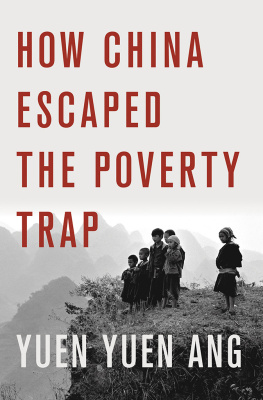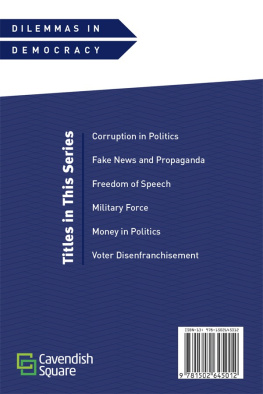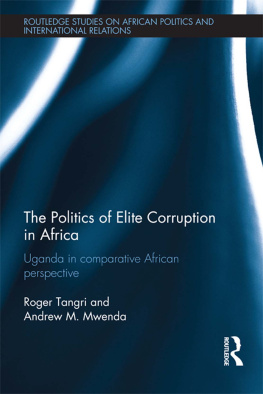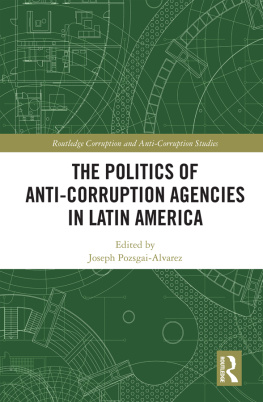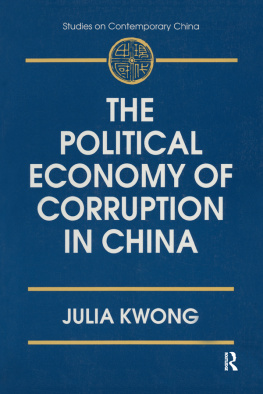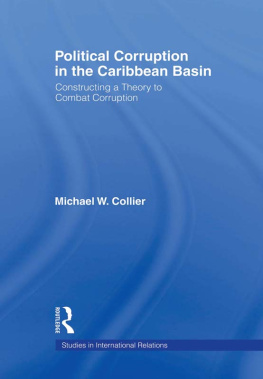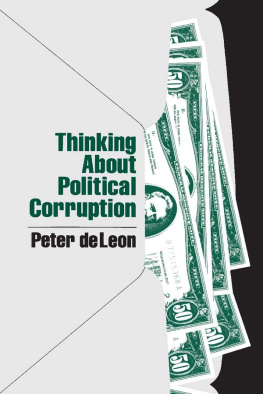Why has China grown so fast for so long despite vast corruption? In Chinas Gilded Age, Yuen Yuen Ang argues that not all types of corruption hurt growth, nor do they cause the same kind of harm. Ang unbundles corruption into four varieties: petty theft, grand theft, speed money, and access money. While the first three types impede growth, access money elite exchanges of power and profit cuts both ways: it stimulates investment and growth but produces serious risks for the economy and political system. Since market opening, corruption in China has evolved toward access money. Using a range of data sources, the author explains the evolution of Chinese corruption, how it differs from the West and other developing countries, and how Xis anti-corruption campaign could affect growth and governance. In this formidable yet accessible book, Ang challenges one-dimensional measures of corruption. By unbundling the problem and adopting a comparative-historical lens, she reveals that the rise of capitalism was not accompanied by the eradication of corruption, but rather by its evolution from thuggery and theft to access money. In doing so, she changes the way we think about corruption and capitalism, not only in China but around the world.
Yuen Yuen Ang is Associate Professor of Political Science at the University of Michigan. Her book How China Escaped the Poverty Trap (2016) received the Peter Katzenstein Book Prize in Political Economy and the Viviana Zelizer Book Award in Economic Sociology. She has been named an Andrew Carnegie Fellow for high-caliber scholarship [on] some of the most pressing issues of our times. In addition, she has received grants, fellowships, and an essay prize from the American Council of Learned Societies, Andrew W. Mellon Foundation, Chiang Ching Kuo Foundation, and Gates Foundation. Her commentaries and interviews have appeared on the BBC and CGTN, and in Foreign Affairs , The New York Times , Project Syndicate , The Wall Street Journal , and media outlets around the world.
University Printing House, Cambridge CB2 8BS, United Kingdom
One Liberty Plaza, 20th Floor, New York, NY 10006, USA
477 Williamstown Road, Port Melbourne, VIC 3207, Australia
314321, 3rd Floor, Plot 3, Splendor Forum, Jasola District Centre, New Delhi 110025, India
79 Anson Road, #0604/06, Singapore 079906
Cambridge University Press is part of the University of Cambridge.
It furthers the Universitys mission by disseminating knowledge in the pursuit of education, learning, and research at the highest international levels of excellence.
www.cambridge.org
Information on this title: www.cambridge.org/9781108478601
DOI: 10.1017/9781108778350
Yuen Yuen Ang 2020
This publication is in copyright. Subject to statutory exception and to the provisions of relevant collective licensing agreements, no reproduction of any part may take place without the written permission of Cambridge University Press.
First published 2020
Printed in the United Kingdom by TJ International Ltd. Padstow Cornwall
A catalogue record for this publication is available from the British Library.
ISBN 978-1-108-47860-1 Hardback
Cambridge University Press has no responsibility for the persistence or accuracy of URLs for external or third-party internet websites referred to in this publication and does not guarantee that any content on such websites is, or will remain, accurate or appropriate.
To mentors, friends, and acquaintances in need
Contents
Figures
Tables
Acknowledgments
Producing a book is like producing a film. For every hour of action on a film, thousands of hours of footage were produced and discarded. Not one but many sponsors and individuals work behind the scenes to create a brief sequence of shots. It is the same way with a book, even though it may appear still on paper.
All production requires, first and foremost, financial support. For this, I thank a private foundation that wishes to remain anonymous, whose generous funding enabled my research and valuable time off for writing. I also thank the Chiang Ching Kuo Foundation for a supplemental grant, as well as the University of Michigans LieberthalRogel Center for Chinese Studies and the Office of Research for their generous research and subvention grants.
One of the greatest joys of writing this book has been working with a talented team of professionals and research assistants: Nathan Baylis, Amy Cesal, Siddharth Chaudhari, Peixu Fang, Michael Thompson, Jiang Zhentao, and Simeng Zeng. Jane Menton skilfully assisted with this project over the course of its evolution and offered helpful comments on my drafts.
Data collection, whether qualitative or quantitative, requires the generosity of many people. This book draws on fieldwork and interviews Ive conducted in China over the years. Again, I wish to thank my research hosts and assistants, who welcomed me into their country and helped me learn about it, as well as the hundreds of bureaucrats and businesspeople who shared their memories and experience. Their stories form the footage with which I made this film.
For the Unbundled Corruption Index (UCI), which appears in who took time from their busy schedule to complete the survey. Several colleagues offered comments early on that helped improve the survey design, including Omolade Adunbi, John Ciociari, Rick Hall, Linda Lim, Ann Lin, Erin McDonnell, and Anne Pitcher, among others. Getting busy people to respond is perhaps the biggest challenge in conducting expert surveys. Thus I extend my sincere appreciation to Linda Lim, Global Integrity (especially Alan Hudson and Johannes Tonn), Ross Business School, and the Wallace Program for connecting me with respondents.
Next, I want to thank many colleagues for feedback at various stages of writing. I thank Anna Grzymala-Busse, Ho-Fung Hung, Diana Kim, and Dan Slater for their formative comments at a book workshop at the Social Science Historical Association just as the book was taking shape. The Center for Global Development, based in Washington, DC, graciously hosted a subsequent book workshop, where I benefited from comments from Masood Ahmed, Charles Kenny, Amanda Glassman, Scott Guggenheim, Scott Morris, Michael Moses, Vijaya Ramachandran, William Savedoff, and Michael Woolcock.
Atul Kohli kindly invited me to present an early chapter from this book some years ago at the Princeton State Building Workshop in New Delhi. His comments propelled me to temporarily set aside that project for a larger book on economic and institutional coevolution, which became How China Escaped the Poverty Trap , and to return to the problem of corruption now, through a comparative-historical lens. Michael Woolcock carefully read the manuscript and offered constructive feedback; in particular, his combination of expertise as a social scientist and development practitioner pushed me to speak to both theoretical and practical concerns. Conversations with Scott Guggenheim and Mark Pyman yielded valuable insights on fighting corruption in the most difficult settings. Alan Hudson lent much needed encouragement for pressing ahead with the task of unbundling corruption. Comments from Alice Evans and Duncan Green, both excellent writers, not only improved the substance of my arguments but taught me how to write better. Jean Oi, Mark Pyman, Andrew Walder, Michael Walton, and Yifan Wei provided timely feedback on my final draft.


